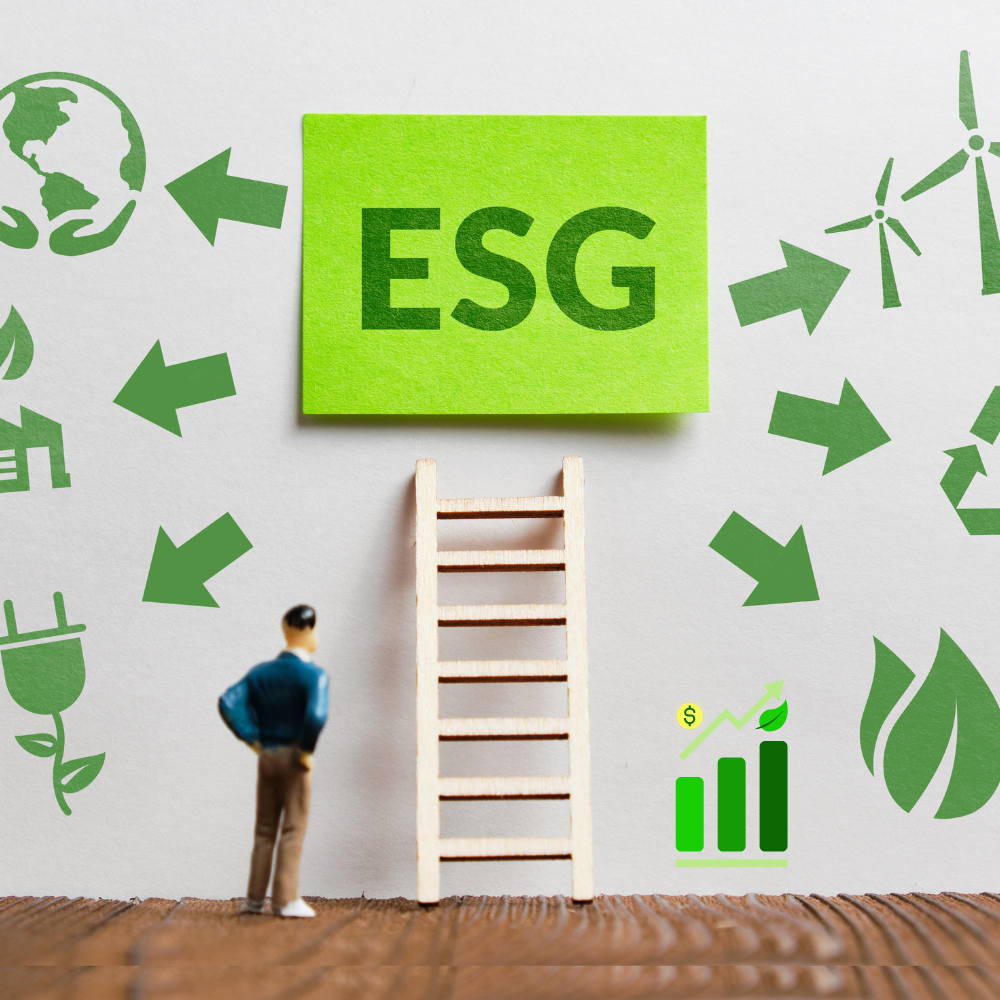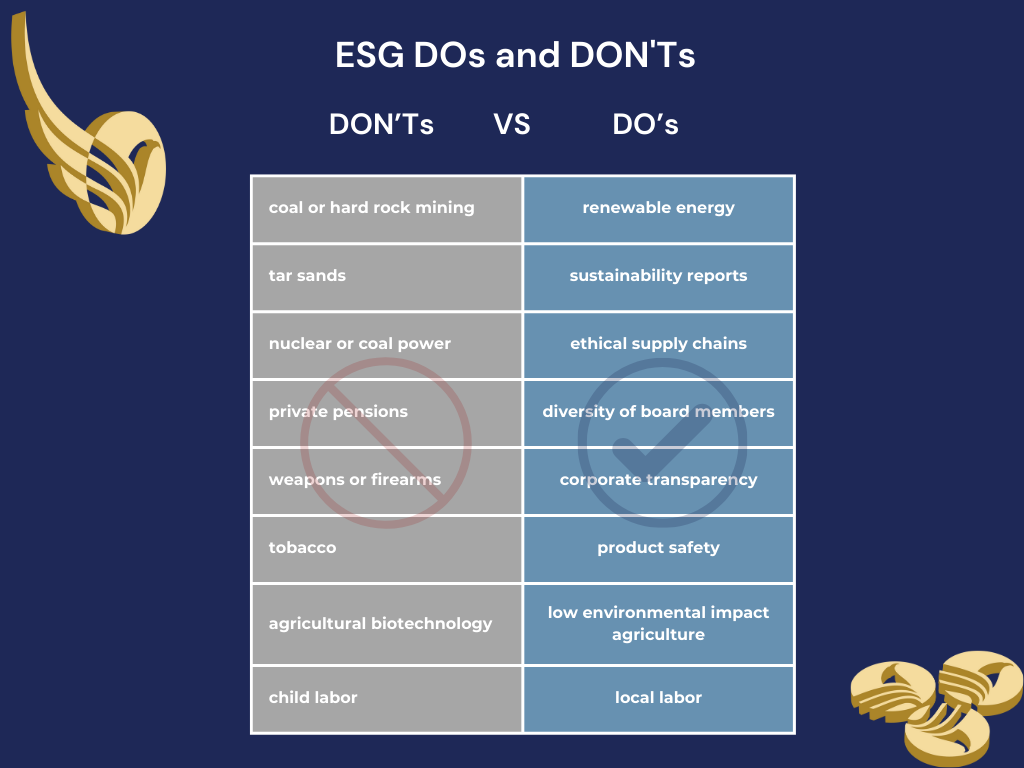
What is ESG, and why is it important to investing? The world of finance is full of acronyms, and ESG – Environment, Social, and Governance – is finding itself more and more in discussions among clients, financial advisors, and company boardrooms. Some even consider it one of the greatest shifts in investing of our time, as we pass from focusing uniquely on financial results, to demanding additional priorities from companies and our investments.
- Environmental: Evaluation of climate policies, energy use, waste, pollution, natural resource conservation, and treatment of animals.
- Social: Evaluation of social practices within the company as well as with its business partners, regarding workplace conditions, employees’ health and safety, and implication within the local community.
- Governance: Ensuring companies pursue integrity, diversity, and equality in selecting their leadership, and avoid conflicts of interest, illegal conduct, or preferential treatment. It also verifies they use accurate and transparent accounting methods and is accountable to shareholders.
The ESG Origin Story
There were plenty of campaigns pressuring companies into fairer, more sustainable business practices throughout the 20th century, but the pressure grew more recently as international attention increased on these issues. As a result, the modern concept of ESG took shape in the early 2000s as a way to insist that companies act correctly regarding topics such as the environment, worker conditions, and corruption.
Many claim that it officially started with the 2004 United-Nations report titled Who Cares Wins, which is widely considered the first mainstream mention of ESG. The report provides recommendations for each actor in the finance industry to report, analyze, and be accountable for ESG issues.
Investors can use their weight to press on issues that matter to them
ESG ratings are the first time the financial industry has provided investors with a way to choose investments based on criteria other than financial results. As the ratings become more standardized, investors and lenders will be able to more clearly identify non-financial priorities and leverage their position as owners to bring about change.
Dos and Don’ts

Business Benefits of ESG
As people and the planet start to reap the rewards of ESG policies, the additional ESG information has helped investors make financially better decisions as well. It’s with more, not less, information that we can more easily identify financial, reputational, and compliance risks, which may materialize into adverse impacts for a company, and subsequently its investors. Considerations of ESG such as due diligence, risk-management, and supply-chain risk management encompass so many important factors. As ESG develops, investors will have more information regarding external costs that could threaten their long-term investment assets.
What kind of return can I expect from ESG funds and companies?
Just like all investments, ESG funds are susceptible to market volatility as well as other investing risks. ESG companies can be particularly sensitive to changes in government policies, as well as changes in the commodities/energy market such as the price of oil or coal. But the ultimate objective of ESG policies are long-term change, and consequently, tends to be seen as a more long-term investment strategy.
Top ESG Rating companies
How do I incorporate ESG into my portfolio?
Today, there are several ways to integrate ESG investments into your portfolio:
- ESG funds: The most common solution are ESG integrated funds which are available for investors of all risk levels, either providing a group of companies that have been screened for ESG, or others who simply include ESG metrics in their financial analysis.
- Individual stocks: Certain specific companies may align with your ESG values, and owning stock provides a way to support them and their business.
- ESG Bonds: These bonds are issued to fund ESG goals, such as a company that wants to fund a solar energy project or a municipality that wants to build a community center.
- Donations: If donating is part of your financial strategy, you can also find charities and organizations that follow ESG guidelines.
Can I invest in ESG if I live overseas?
ESG funds are offered all around the world, however, US expats need to be careful about their choice of funds as fiscal regulations must be taken into consideration. Harrison Brook offers a range of ESG focused portfolios specifically designed for US expats. It’s always recommended to consult with a tax advisor and financial planner who works specifically with expats to ensure you’re making the best decision for your financial situation.
Peace of Mind with a qualified cross-border financial professional
Since its inception, The ESG issues haven’t waned as people care more and more about sustainability, corruption, and diversity in the workplace. While today the US doesn’t require financial advisors to ask investors about ESG, it’s only a matter of time before they demand an ESG questionnaire like they do in Europe. At Harrison Brook, we offer bespoke ESG funds for our expat clients who wish to include them in their portfolios. We also make sure they comply with any cross-border financial or fiscal responsibilities you may have. Harrison Brook USA is here to assist you in managing your financial assets, so don’t hesitate to book a meeting with us.


